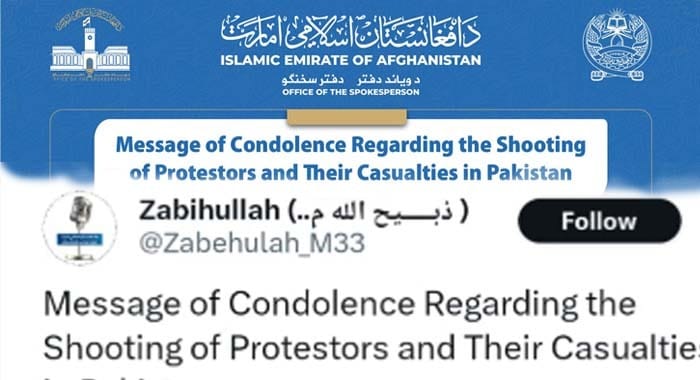Pakistan strongly rebuked the Taliban regime for interfering in its internal affairs and warned Kabul against actions and statements that undermine regional stability. The sharp exchange followed deadly border clashes and renewed tensions over cross-border militancy.
The diplomatic rift deepened after the Taliban issued a statement criticizing Pakistan’s handling of recent Tehreek-e-Labbaik Pakistan (TLP) protests, claiming it was “saddened” by alleged civilian casualties. Islamabad viewed the remarks as a clear overstep, calling them both “unwarranted and irresponsible.”
In a firm response, Pakistan’s Foreign Office reminded the Taliban regime that it must “refrain from commenting on matters outside its jurisdiction” and instead focus on fulfilling its own obligations, particularly those under the 2020 Doha Agreement.
“Pakistan does not need unsolicited advice on its internal matters,” the statement read, adding that the Taliban should prioritize combating terrorism, ensuring human rights, and preventing Afghan soil from being used for cross-border attacks.
The ministry’s language marked a deliberate shift in tone — referring to the Taliban as the “Taliban regime” rather than the “interim government of Afghanistan” — a reflection of growing official frustration in Islamabad over Kabul’s unwillingness to curb terrorist groups operating within its borders.
The exchange came days after Pakistan’s security forces repelled one of the heaviest Taliban-led assaults along the Pak-Afghan border in recent years. On October 11, Afghan fighters launched unprovoked fire on multiple sectors along the Durand Line, to which Pakistan responded with precision strikes that neutralized over 200 militants, including members of the outlawed Tehreek-e-Taliban Pakistan (TTP). Twenty-three Pakistani soldiers laid down their lives defending the frontier.
Islamabad has repeatedly warned that the TTP’s continued presence and freedom of movement inside Afghanistan pose the gravest threat to Pakistan’s security and to regional peace. Despite numerous assurances from Kabul, the Taliban regime has failed to act decisively against the TTP and its affiliates, allowing their networks to regroup and operate freely.
Following the clashes, border crossings remained closed as Pakistan enhanced surveillance and defensive measures along the frontier. Reports indicate that targeted operations against terrorist hideouts inside Afghan territory were carried out in response to cross-border aggression, though official details remain classified.
The Taliban, facing mounting international criticism over governance failures, human rights abuses, and economic mismanagement, has sought to shift attention outward a move observers in Islamabad see as an attempt to deflect from internal discontent and security lapses.
Taliban spokesman Zabihullah Mujahid claimed that Qatar and Saudi Arabia were engaged in back-channel diplomacy to ease tensions, though Pakistani officials have not confirmed any formal mediation efforts.
Islamabad maintains that it seeks peaceful, neighborly relations with Afghanistan based on mutual respect and non-interference. However, it has made clear that any threat to Pakistan’s sovereignty will meet a firm and proportionate response.
“Pakistan has shown immense patience in the face of repeated provocations,” said a senior Pakistani official. “Our preference is dialogue, not confrontation — but our resolve to defend the nation’s security is absolute.”





